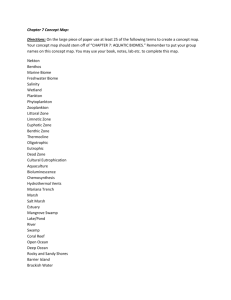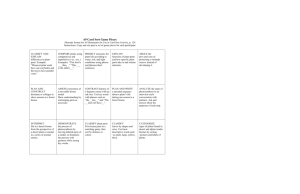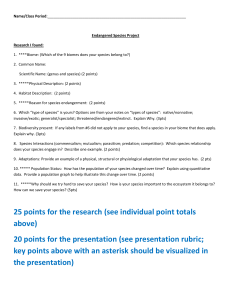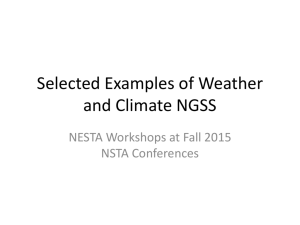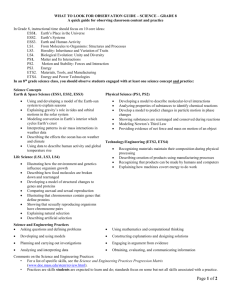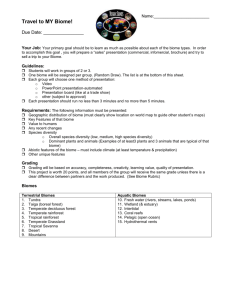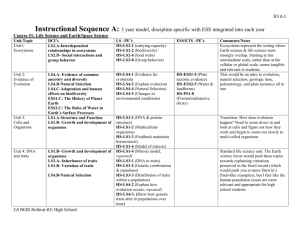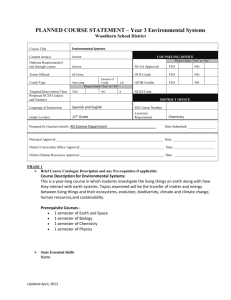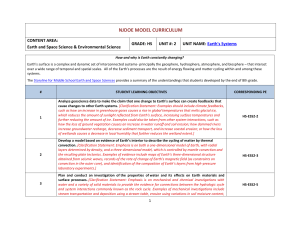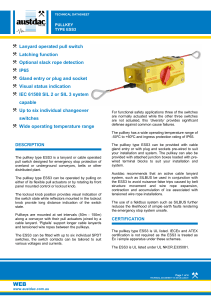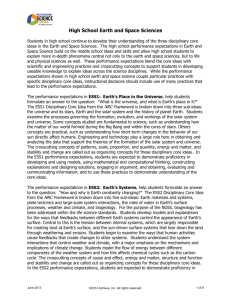Biomes/Hotspots
advertisement
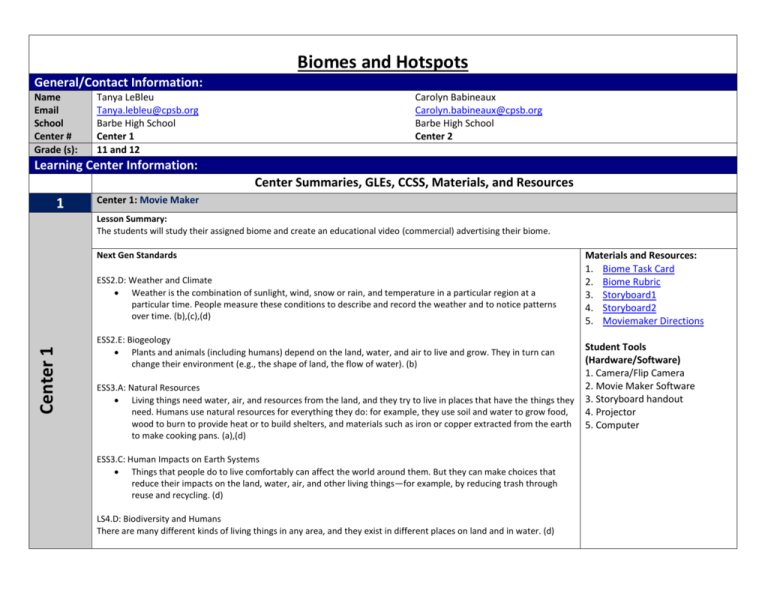
Biomes and Hotspots General/Contact Information: Name Email School Center # Grade (s): Tanya LeBleu Tanya.lebleu@cpsb.org Barbe High School Center 1 11 and 12 Carolyn Babineaux Carolyn.babineaux@cpsb.org Barbe High School Center 2 Learning Center Information: Center Summaries, GLEs, CCSS, Materials, and Resources 1 Center 1: Movie Maker Lesson Summary: The students will study their assigned biome and create an educational video (commercial) advertising their biome. Next Gen Standards Center 1 ESS2.D: Weather and Climate Weather is the combination of sunlight, wind, snow or rain, and temperature in a particular region at a particular time. People measure these conditions to describe and record the weather and to notice patterns over time. (b),(c),(d) ESS2.E: Biogeology Plants and animals (including humans) depend on the land, water, and air to live and grow. They in turn can change their environment (e.g., the shape of land, the flow of water). (b) ESS3.A: Natural Resources Living things need water, air, and resources from the land, and they try to live in places that have the things they need. Humans use natural resources for everything they do: for example, they use soil and water to grow food, wood to burn to provide heat or to build shelters, and materials such as iron or copper extracted from the earth to make cooking pans. (a),(d) ESS3.C: Human Impacts on Earth Systems Things that people do to live comfortably can affect the world around them. But they can make choices that reduce their impacts on the land, water, air, and other living things—for example, by reducing trash through reuse and recycling. (d) LS4.D: Biodiversity and Humans There are many different kinds of living things in any area, and they exist in different places on land and in water. (d) Materials and Resources: 1. Biome Task Card 2. Biome Rubric 3. Storyboard1 4. Storyboard2 5. Moviemaker Directions Student Tools (Hardware/Software) 1. Camera/Flip Camera 2. Movie Maker Software 3. Storyboard handout 4. Projector 5. Computer 2 Center 2: Brochure Lesson Summary: The students will create a travel brochure highlighting endemic species, threats to the biome, ecotourism, the climate, and the conservation efforts to protect the assigned biome. Next Generation Standards Center 2 ESS2.E: Biogeology Plants and animals (including humans) depend on the land, water, and air to live and grow. They in turn can change their environment (e.g., the shape of land, the flow of water). (b) ESS3.A: Natural Resources Living things need water, air, and resources from the land, and they try to live in places that have the things they need. Humans use natural resources for everything they do: for example, they use soil and water to grow food, wood to burn to provide heat or to build shelters, and materials such as iron or copper extracted from the earth to make cooking pans. (a),(d) ESS3.C: Human Impacts on Earth Systems Things that people do to live comfortably can affect the world around them. But they can make choices that reduce their impacts on the land, water, air, and other living things—for example, by reducing trash through reuse and recycling. (d) Materials and Resources: 1. Hotspot Task Card 2. Hotspot Rubric 3. Storyboard 4. Instructions Student Tools (Hardware/Software) 1. Computer 2. Storyboard 3. Brochure processing program 4. Printer
